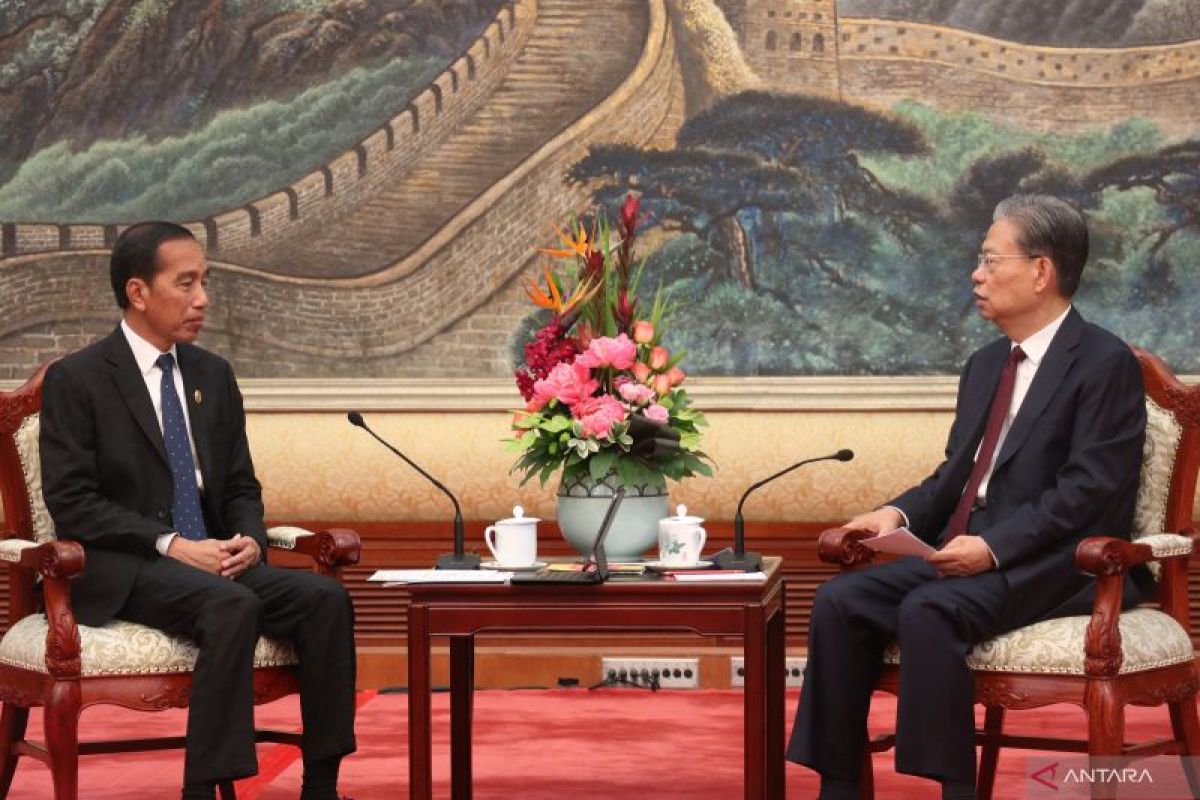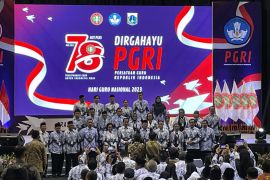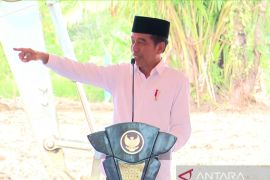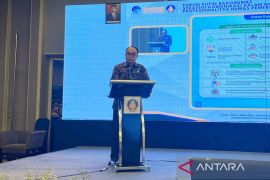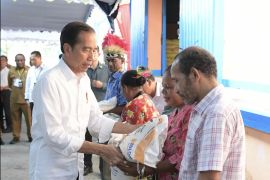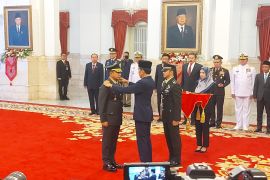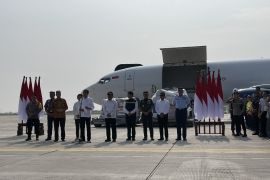"The comprehensive strategic partnership between Indonesia and China has been fostered for 10 years. We should continue to maintain it in the hopes of strengthening our ties," President Jokowi remarked at the Great Hall of the People, Beijing.
The president met with Zhao after attending the opening ceremony of The Third Belt and Road Forum (BRF) for International Cooperation at the same venue.
"And I appreciate the well-fostered cooperation between the parliaments of both countries," he stated.
President Jokowi noted that the governments of Indonesia and China had agreed to further solidify cooperation in various fields.
"We need support from the parliaments in this context," he remarked.
Meanwhile, Chairman Zhao, on his part, highlighted that Indonesia had become one of the most important partners of China within the cooperation framework of the "Belt and Road Initiative."
"President Xi Jinping unveiled the Belt and Road Initiative 10 years ago," he remarked, adding that under the strategic leadership of President Xi and President Jokowi, both countries have been eager to sustain the initiative.
He further noted that mutually beneficial cooperation had resulted in expected progress that positively affected regional economic cooperation.
After attending the meeting that lasted 15 minutes, the Indonesian head of state and his entourage proceeded to join a lunch session.
During the meeting, President Jokowi was accompanied by ad-interim Maritime Affairs and Investment Coordinating Minister Erick Thohir, Minister of Trade Zulkifli Hasan, Cabinet Secretary Pramono Anung, and Indonesian Ambassador to China Djauhari Oratmangun.
Earlier, on Tuesday (October 17), President Jokowi also met with Chinese Prime Minister Li Qiang in Beijing.
The Belt and Road Initiative (BRI), or One Belt One Road (OBOR), is a program introduced by the President of China Xi Jinping in 2013.
President Xi devised the program to bring back the glory of the Silk Road to the 21st century. To that end, the president has been directing his country to invest and build infrastructure on a massive scale in as many as 152 countries in Europe, Asia, the Middle East, South America, and Africa.
The word "Belt" in BRI is the short for the "Silk Road Economic Belt" that refers to the vision of connecting China to countries in Central Asia, South Asia, and Europe with road and rail routes.
Meanwhile, the word "Road" is derived from the "21st Century Maritime Silk Road" that refers to China's aspiration to establish sea paths connecting it to Southeast Asia, the Middle East, East Africa, West Africa, and Europe.
Indonesia has received funding from China under the BRI to work on several projects, such as energy projects, water management, agriculture, and rail-based means of mass transport, namely the Light Rail Transit (LRT) trains and the Jakarta-Bandung High-speed Trains (KCJB).
The KCJB, which was inaugurated by President Jokowi in early October this year, can transport people from Jakarta to Bandung in just 36-44 minutes since the trains reach a top speed of 350 kilometers per hour.
In addition to Indonesia, 146 countries have signed a deal with China under the BRI program that has resulted in various transportation infrastructure, including the China-Laos Railway, China-Europe Railway Express, and Mombasa-Nairobi Standard Gauge Railway in Kenya.
Related news: Jokowi hopes for equal partnership in Belt and Road Initiative
Related news: Indonesia's key products on display at Shanghai's Belt & Road Expo
Translator: Desca L, Tegar Nurfitra
Editor: Rahmad Nasution
Copyright © ANTARA 2023
